Japanese Company Lets You Rent Someone to Befriend Your Cheating Partner’s Lover and Convince Them to Back Off

Ginza Ladis 1, a private investigation services company in Japan, seems to think that having someone talk your cheating partner’s lover into ending the relationship is the best way to get your love life back on track. Welcome to Japan, the country where you can rent a person for virtually anything, from posing as your […]
The Fascinating Life of a Japanese Amazon Box Collector

When receiving an order from Amazon, most people throw way the packaging box immediately, but one Japanese man loves Amazon boxes so much that he has spent the last 9 years collecting them. So what posses a man to start collecting Amazon cardboard boxes? In the case of Kosuke Saito, from Osaka, Japan, it was […]
Japanese Band Stuns Audience with 8-Second Concert
A Japanese Visual Key air band called Golden Bomber recently treated fans to one of the strangest concerts ever, an 8-second performance to promote their latest single, an 8-second song called “8 Second Encounter” On June 29, fans of Golden Bomber started showing up at Ikebukuro’s Sunshine City mall, in Tokyo, Japan, up to six hours in […]
Japanese Professor Claims That Crows Respect Written “Do Not Enter” Signs

When a friend and “crow expert” told Katsufumi Sato to hang some “do not enter signs” on the outside of a building to keep pesky crows a way, the Japanese professor thought he was only kidding, but after three years of employing the bizarre strategy, he says it works perfectly. Sato, a professor of ethology, hanged […]
White Jewel – The Japanese White Strawberries Worth Their Weight in Gold
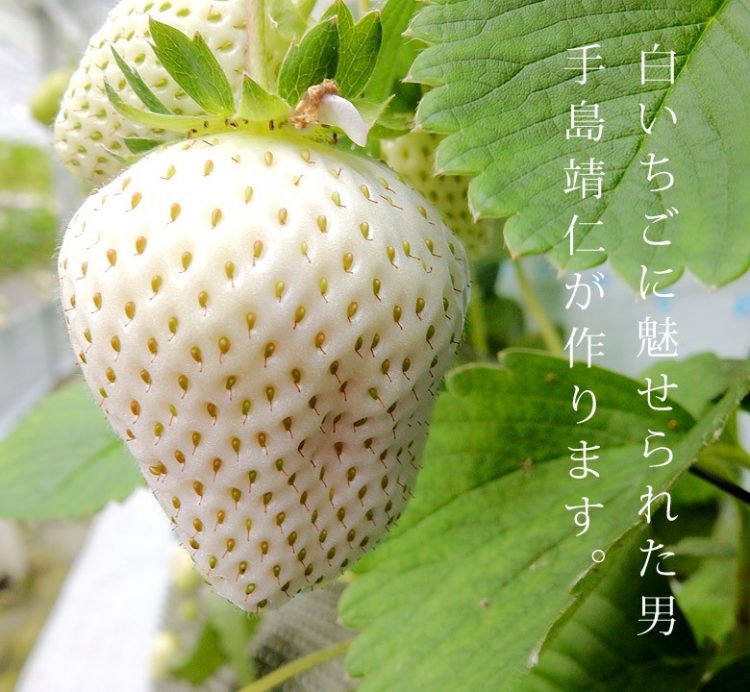
Most people have never even seen, let alone tasted, white strawberries, but they’ve been a staple of the Japanese luxury fruit market for years. The Asian country actually has several varieties of white strawberries, among which the White Jewel, or Shiroi Houseki stands out as the rarest and most expensive. White Jewel strawberries were created […]
Cleverly Designed T-Shirt Can Give Anyone an Ample Bosom

ekoD Works, a Japanese fashion company that specializes in “humorous art and design”, has recently unveiled an optical illusion t-shirt that can give anyone a busty chest. The Illusion Grid t-shirt uses distortion and clever shading to manipulate perspective and make anyone looking at it from the front believe that they are staring at two large, […]
Japan’s Earthquake-Resistant Dome Houses Are Made of Styrofoam
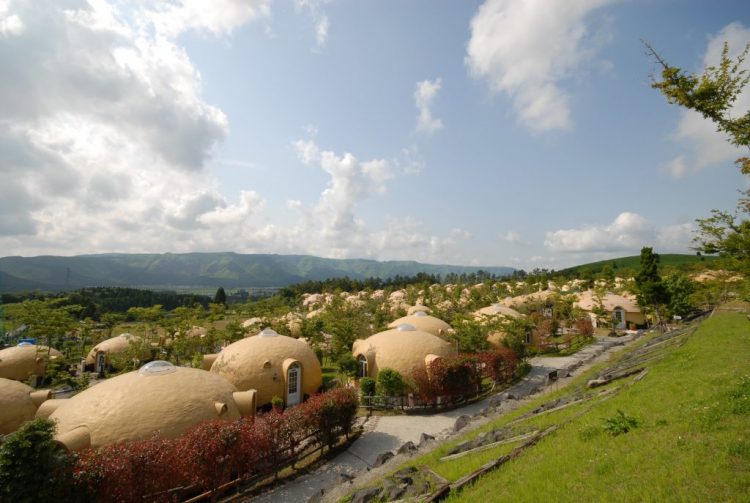
When they hear the word “Styrofoam”, most people think about disposable food containers or packaging material, but for one Japanese modular home manufacturer, it is the building material of the future. Its increasingly popular Styrofoam dome houses are highly earthquake-resistant, super cheap and quick to build, and have very high thermal insulating properties. What’s not to like? Japan […]
The Mind-Blowing Sand Sculptures of Toshihiko Hosaka

Looking at Toshihiko Hosaka’s incredibly detailed sculptures, it’s hard to believe that they are made from grainy beach sand, and not some sort of clay. But he only uses sand, his talent and 20-years of experience. 43-year-old Hosaka has been making sand sculptures ever since he was in school, and has been honing his skills for over two decades. […]
This Restaurant Will Pay You $900 If You Can Eat 20 Pounds of Rice and Curry in an Hour

If you’re really short on cash and haven’t eaten anything in about a week, you may want to head over to Gold Curry, a restaurant in Japan’s Ishikawa prefecture, where you can earn up to $900 if you can finish one of their giant dishes in the allotted time. We’ve featured some outrageous restaurant challenges […]
13-Year-Old Japanese Girl Sparks Debate about Age in the Modelling Industry

Momoka Kurita made quite an impression when she posed as a “race queen” during a superbike racing event in Japan, last year. Adult men showered her with compliments for her stunning looks, but little did they know that she was just 12-years-old at the time, and still in elementary school. Her appearance at the 2016 48th […]
Woman Creates Pigeon-Shaped Shoes in Attempt to Get Close to Real Pigeons
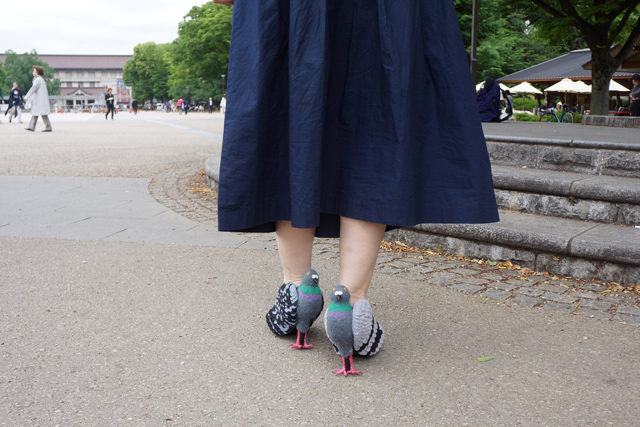
A DIY master from Tokyo, Japan, recently conquered the internet with a very unusual project. She set out to turn a pair of cheap high-heel shoes into realistic-looking pigeons to see if they would allow her to get closer to the real birds in a local park without them flying away. Did it work? Read […]
Throw Away That Alarm Clock, You Can Now Have a Real Japanese Fisherman Wake You Up in the Morning
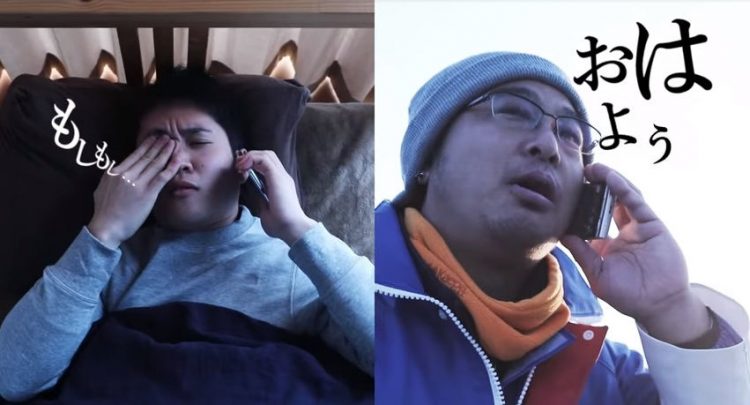
Waking up in the morning is tough, and sometimes a ringing alarm clock just isn’t enough to jolt you out of a blissful slumber. Luckily, snoozers in Japan now have a better alternative – an energy-inducing phone call from a fisherman at sea. Fisherman Japan, an organization whose main purpose is to make fishing cool again, recently […]
The Cat Man of Kyushu Walks His Nine Furry Felines in a Baby Stroller
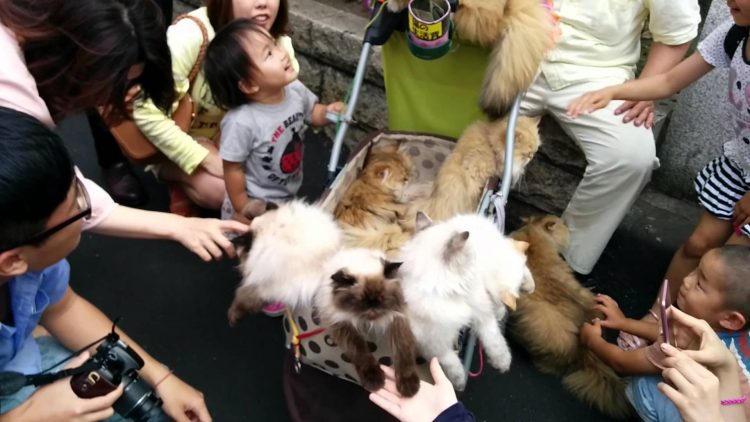
Taking nine pet cats on daily strolls through the city is kind of unusual, but having them sit in a baby stroller while you’re pushing them around is bound to catch some eyeballs. So it’s no surprise that the Cat Man of Kyushu attracts attention wherever he goes. Masahiko Suga, a 55-year-old retired electronics company worker, […]
Japanese Train Enthusiast Converts Room into a Realistic Train Car Replica

This might look like an unimpressive photo taken in a train car, but it’s actually a room in the house of a Japanese train enthusiast. The tetsudo fan (Japanese translation of the term “railfan”) community in Japan is known for its obsession with everything related to trains. Some members travel all over the country snapping […]
82-Year-Old Japanese Woman Spends Her Days Making Dumplings and Her Nights Dropping Beats as a Nightclub DJ

82-year-old Sumiko Iwamuro runs a Chinese restaurant in Tokyo, where she spends her days making “gyoza” dumplings, but when the sun sets, she turns into DJ Sumirock, an energetic party-starter dropping beats in popular nightclubs around the Japanese capital. Sumiko discovered her passion for techno music 12 years ago, while choosing the music at her son’s birthday party, […]
